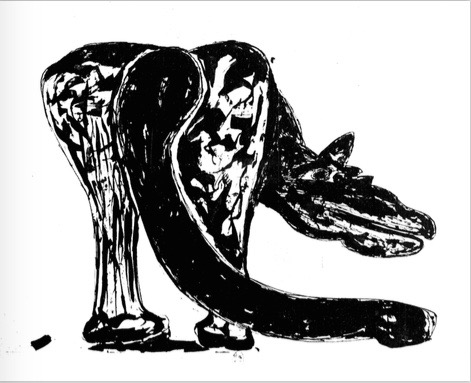Can Rabindranath Tagore be considered a “surrealist”? This paper questions the historiography concerning Tagore’s legacy in art while simultaneously examining the cultural climate surrounding his 1930 exhibition in Paris. A contemporary re-evaluation of Rabindranath Tagore’s work in this context opens up new questions about the historical avant-garde and its limits. In light of growing academic discussions about “global modernisms”, a reconsideration of Tagore’s drawings and paintings reveals them to be one marker of a larger relay of aesthetic practices happening within and outside of modernism in the West in the 1920s and 30s. The paper looks to South America and Japan to think about the genesis of Tagore’s art against the backdrop of the celebrated African and Oceanic exhibition in Paris during the period. Drawing on scientific, economic and legal discourses, cross-cultural analysis and popular culture, Tagore’s erasures, drawings and paintings offer revolutionary perspectives on current debates in the field.
Swimming in a Dark Sea: Rabindranath Tagore, Surrealism and the Colonial Unconscious, Paris, 1930
Rakhee Balaram (State University of New York, Albany/ Art Histories Fellow 2015/16)
Forum Transregionale Studien, Wallotstr. 14, 14193 Berlin

Rakhee Balaram is Assistant Professor of Art & Art History at University at Albany, State University of New York. She has previously taught history of art at the School of Arts and Aesthetics, Jawaharlal Nehru University, New Delhi, and at the University of Warwick. She is currently working on two book-length projects, Decolonizing the Modern: Amrita Sher-Gil, Rabindranath Tagore and the Global Avant-Garde, a paradigmatic reassessment of two major Indian artists in the wake of global modernism, and Counterpractice: Psychoanalysis, Politics and the Art of ‘French Feminism’, or an alternative history of art in France after May ’68. In 2011-2012, she was curator of Fragility, a large-scale exhibition focusing on contemporary Indian art and politics in Gurgaon, India. The exhibition has led to a long-term research project, Postcolonialism and the Politics of Touch: Contemporary Indian Art and the New Sensorial. She is co-editor, along with Partha Mitter and Parul Dave-Mukherji, of a comprehensive survey of modern and contemporary Indian art, 20th Century Indian Art (Skira, 2016). Balaram holds double doctorates in French Literature from Cambridge University and the History of Art from the Courtauld Institute of Art, University of London.

